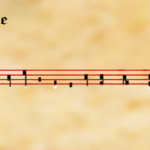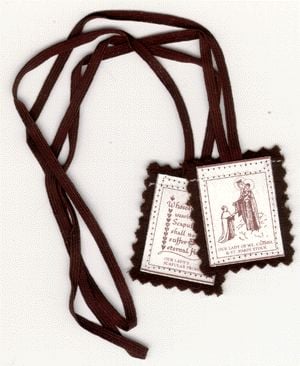In a manner of speaking, anyway.
A parishioner from a parish in Maine sent me a link to a live-streamed video of their Ash Wednesday mass, wherein the priest jumps off of the Ash Wednesday homily I have said I would give, if I ever had the chance.
Check it out (homily begins at about 18:30) and let me know what you think!
And since I’m talking about me and Ash Wednesday, I might as well go the full-on “shameless self-promotion” people tell me I should do more of (!) and say you might have gotten a peek at me on EWTN Nightly News the other night, talking about the phenomenon of #Ashtagging, a subject on which I am torn, although leaning toward “nay.” I think there is a real risk of trivializing something profound and important, once you give it over to the pop-culture, but I know other’s disagree, and I do get their points about evangelization. Still, I’d say, “when in doubt leave it out.” Which is kind of what I said.
Deacon Greg has the video, which for some reason I cannot embed.
 In other news, remember when I told you Strange Gods (which sold-out at Amazon but has been restocked!) was now available in Poland? Last week I found out it is also for sale in India! How cool is that? It gives me goosebumples to think about. Very humbling to see this little book reaching so many minds, and especially young people in Confirmation and Intro Theology classes! Praise God.
In other news, remember when I told you Strange Gods (which sold-out at Amazon but has been restocked!) was now available in Poland? Last week I found out it is also for sale in India! How cool is that? It gives me goosebumples to think about. Very humbling to see this little book reaching so many minds, and especially young people in Confirmation and Intro Theology classes! Praise God.
Speaking of Bookchat: As I said last night, I am doing Lenten reading suggestions a little differently this year. So, there will be a whole series of posts featuring excerpts from the books I’m loving for 2015, so keep yer eyes peeled!
Also, my latest column for The Catholic Answer is up and running over at OSV, and it’s on the Sacrament of the Anointing of the Sick, and — I know, this sounds weird — weight loss:
A friend who has struggled all his life with weight issues recently showed up nearly 80 pounds lighter and was glowing.
People could not stop commenting on the radiance of his face, which they attributed solely to his decreased girth, but when asked about his diet, my friend would quickly change the subject. Privately, he related to me the secret of his dramatic weight loss: “I got anointed,” he said. “I needed to be healed of the sin that was driving me to gluttony.” He meant the prison of concupiscence — the sin of serving cravings and instincts of the flesh, over the promptings of our better angels.
I was instantly tickled by his news, but also moderately scandalized. What amused me were visions of Oprah Winfrey gassing on about “anointing your way to good health” and late-night television ads hawking “New Bless and Smear! Be Saved and Svelte After One Anointing, Guaranteed!”
What scandalized me, because eventually even I can come to my senses, was the same thing: a recognition of the insta-levity my friend’s actions might inspire, and how that might reflect poorly on a sacrament of such powerful healing. I suddenly understood his polite refusal to discuss his “diet” among company, and interiorly a finger-wagging voice was hectoring me toward judgment, telling me that the use of a sacrament to address something as vanity serving as one’s weight was a frivolous abuse of Christ-gifted grace.
And yet, that inner voice could not quite convince me that my friend had been flighty, or shallow, in pursuing the sacrament. Very familiar with how seriously he lived his faith, I knew that my friend’s anointing was about more than mere weight loss, or the balance of earthly scales; it was — it would have to be — a desperately sought-out last rite for a soul who, in the midst of a grave spiritual examination, had identified the source of his crushing illness. His sinful surrender to concupiscence was killing him and a turning — a conversion — would be necessary if he was to continue to live, and work, and love.
Far from being a frivolity, his seeking out of the sacrament was, in fact, an act of deep humility; it was a supplication for healing over his entire life — another surrender, this time of self. It was a turning over to God the safe havens of anger and judgment into which he had withdrawn himself for too long, and a plea for deliverance from the bitter, unhealthy lashing out that was keeping him, and those he loved, entrapped in a hellish and unhappy place.
His weight loss was actually a side effect of the power of the anointing, a physical manifestation of the spiritual healing that came about when he set his entire body, his livelihood and his very mind and heart before the Lord and said, “If you will, you can heal me.”
You can read the rest, here
Try not to judge it, though.
Everyone carrying extra weight needs healing of some sort, whether it’s physically or spiritually or even mentally. I knew a young man with an absolutely beautiful face and the sweetest personality, who weighed about 400 lbs. Every time I saw him, my first thought was, “oh, poor boy, who hurt you?” because I assumed he had self-medicated himself into obesity.
I’m intimately familiar with that. Enough physical and sexual abuse, and one can form a fleshy shield about oneself, a subconscious (and futile) attempt to both repel predators by sheer repulsion, and to silence the reverberation of a million swallowed-back screams that echo, still.
I could have been wrong about the young man, of course; he might have had a thryoid situation (something, sadly, I am also familiar with) or perhaps he might be found (as science is discovering) to have an issue of the gut that directly impacts weight.
That’s research that could salve the wounded psyches and self-esteem of a lot of people who, like me, look at the massive meals others consume and wonder why we’re the ones who are waddling.
The point is, when people — Catholic people who take Communion on Sundays without giving it a second thought — feel free to judge the souls of other people because they are fat, even going so far as to calling derogatory names (I was especially impressed by the Catholic priest who called me “Gluttoness” online), they’re not doing their own souls any favors. If I have overindulged into gluttony in my life (and I have) well, my sin is apparent and obvious, and I get to haul it around with me, so you can see it. To generous souls, it shouldn’t inspire judgement but prayers.
Sins of pride and wrath, on the other hand, may be invisible, but they’re no less deadly, are they? And in a sense, more dangerous, because by their hidden-ness they may not prompt the judgement of others, but they don’t prompt the prayers, either. I may be ashamed of my fatness, but goodness, if it prompts someone to pray for my soul, then in a way I can find it a most profitable humiliation.
We’re all in this together. That’s worth remembering, especially in Lent, when we are in the desert, trying to find mercy and pursue its mysteries. Let’s have a little mercy on each other, if for no other reason than when we go to God, we can bring along the goblet full of mercy we’ve shown, to offer for the sake of our own sins.
But enough about me. As they say in Brooklyn, “how you doin’?”














